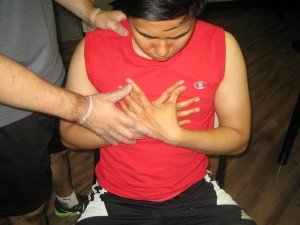https://www.youtube.com/watch?v=PRxW7axwKEE
Angina is described as a chest pain that normally occurs when the heart does not receive sufficient blood supply thereby depriving it with the oxygen it needs to properly carry out its function. Angina is actually a symptom, but usually mistaken as a condition. When the heart is deprived of blood supply and oxygen, one becomes susceptible to heart diseases like congestive heart failure, coronary artery disease as well as atherosclerosis.
The heart is mainly made up of muscles that need oxygen and nutrients to function. The coronary arteries are the major channels by which the oxygen and blood flow to the heart. When these arteries become narrow, angina occurs owing to the reduced blood and oxygen flow to the heart muscles, depriving it to carry out its physiologic activities.
Angina is usually felt as a pressure or squeezing sensation in the chest. One will feel an extreme discomfort that may radiate to the shoulders, arm, neck, jaw or back. In most cases, it is described as indigestion. In less severe cases (as with stable angina), the discomfort will not usually last long. The symptoms usually disappear after a rest.
What are the risk factors for angina?

As you age, your coronary arteries are narrowed because of the fatty deposits along the walls of the blood vessels. These plaques occur because of a number of factors such as the following:
- A diet high in cholesterol or fats
- High blood pressure
- Smoking
- Sedentary lifestyle
- Obesity
- Uncontrolled diabetes
- Hereditary
What are the types of angina?
Angina can be stable and unstable. A stable angina is more predictable after performing an activity that usually triggers the condition. An unstable angina on the other hand is more unpredictable as it can occur without a warning and even while the person is at rest. When you have an episode of unstable angina, your chest pain will be more severe. This can be a very dangerous condition and you might require medical treatment as soon as possible.
First aid for angina
When someone experiences an angina, you can apply a first aid immediately. Be aware that it can trigger a heart attack thus it is necessary to call 911 immediately and do the following:
- Loosen tight clothing
- Allow the victim to sit in a reclined position
- Do not give any fluid to drink
- Prepare yourself to give a CPR in case the person started having a heart attack.
Reference:
National Heart, Lung and Blood Institute. What is Angina? Retrieved on July 3, 2014 from https://www.nhlbi.nih.gov/health/health-topics/topics/angina/.

